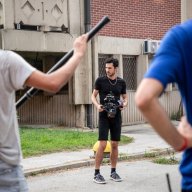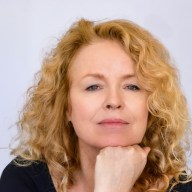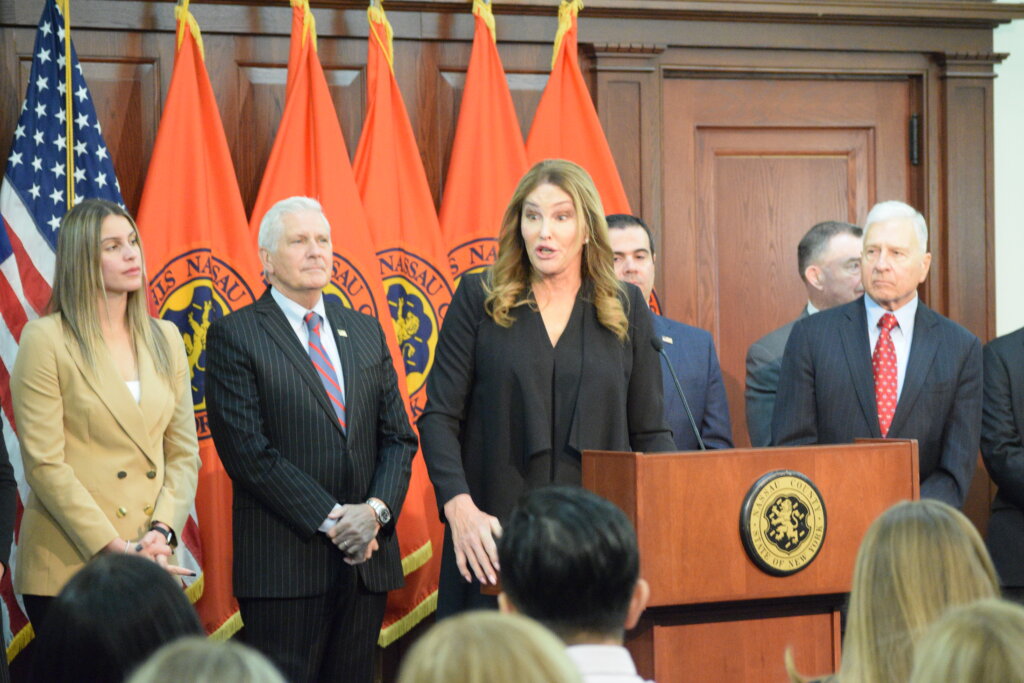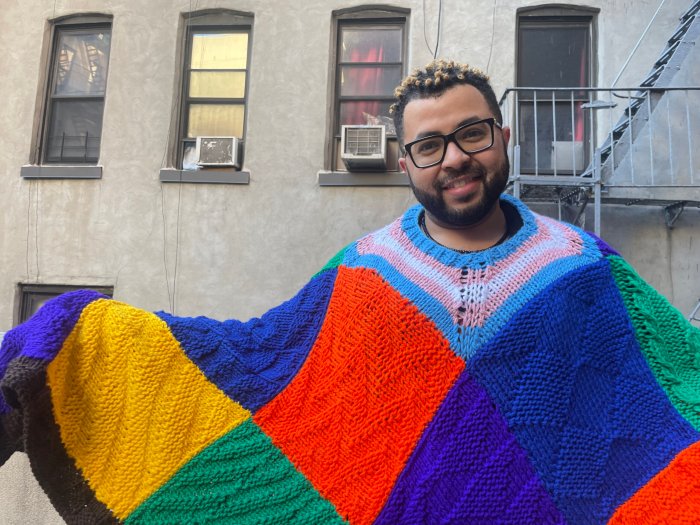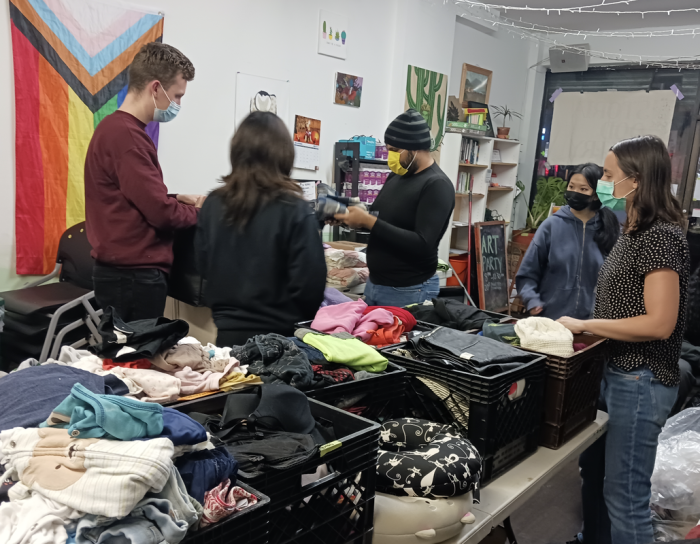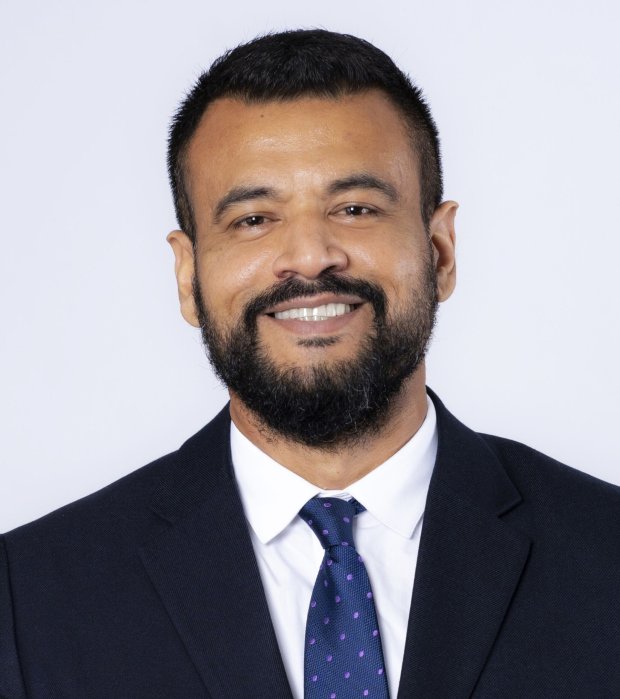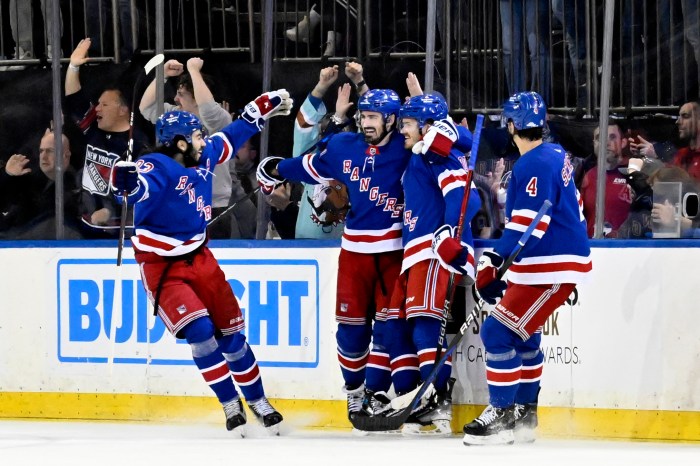Terri Clark, (no, not she of “cry-into-your-beer” country music fame) is an irrepressibly upbeat force of nature in the lives of young students at downtown Brooklyn's New York City College of Technology. Clark, 47, runs the CUNY school's Student Wellness Center and takes special care with young people who are exploring their identity or running into any trouble based on their sexuality or gender.
Clark was part of a fab four cadre of out-gay staffers at City Tech-that also included Daniel Fictum, director of Student Life, Cynthia Bink, director of Counseling, and Michele Forsten, director of communications-who convened a special colloquium, Gay Today at CUNY, earlier this month on the state of LGBTQ students throughout the entire City University of New York system. The colloquium brought together 50-plus counselors, student affairs representatives, faculty, and administrators from every borough to discuss what's working and what could be done better to support queer students in their academic journeys.
Special focus was given to thinking about the barriers to academic success for students who are exploring their sexuality or gender identity while still living at home, perhaps coming from a very religious family, one that recently immigrated to the U.S., or that has other characteristics that complicate their lives.
Clark, in her remarks to the gathering, noted figures from a recent National Gay and Lesbian Task Force study-the largest ever on LGBT students on college campuses-that showed that almost one in five respondents had feared for their physical safety because of their sexual orientation or gender identity, and that 43 percent considered their campus to be homophobic.
When not working to make her campus safe for all students, Clark is an avid outdoorswoman who plays in the Park Slope women's softball league and this past summer led bike tours through the Pacific Northwest.
CHRSTOPHER MURRAY: What is it like for students to come out these days?
TERRI CLARK: Students are coming out at earlier ages, and many are out and proud in high school. I think in the New York City metro area there are services within gay/straight alliances that provide a more supportive environment than there was 10 to 15 years ago. At the same time, young people still face stigma and homophobia, which can be overwhelming and frightening. In the news, we hear about gay bashing all the time. Even with the increased number of gay/straight alliances and supportive college campuses, there remains work to be done to provide safe environments for students who are coming out. The coming out process is rarely easy. I think that is always a challenge in different ways for different people.
CM: How does City Tech's Student Wellness Center help queer or questioning students?
TC: The Wellness Center is a welcoming environment for all students, including queer and questioning youth. My staff and I are sensitive and supportive of students' many issues related to physical, emotional, and spiritual health. The Wellness Center is a Safe Zone for students who are queer and questioning. They can get info, find support, and receive health services around whatever health concerns they have. When students walk into my office, they often notice right away the rainbow flags, postcards about gay and lesbian issues. I pride myself in making a safe environment. Because I am out on campus, I think LGBTQ students see me as a person they can come and talk to.
CM: Are there particular issues for LGBTQ students at a place like City Tech?
TC: A large percentage of our student population is underrepresented students from a wide range of racial and ethnic groups. This means they may feel stress and pressure of competing identities between their race or ethnicity and being LGBTQ. Additionally, although there is a Safe Zone program in place at City Tech, we have work to do in moving toward a campus that's more inclusive and supportive of LGBTQ students. Also, the curriculum offerings need to be expanded to include LGBTQ issues, so students can see queer people represented academically. This holds true for all the disciplines.
CM: Are you completely out on campus? Is this ever an issue?
TC: Yes, I am completely out on campus. Fortunately, I have not felt it is an issue in terms of my work or the impact I have on students, staff, and faculty around these issues. However, I don't think this holds true for all faculty and staff. There are faculty, staff, and high-level administrators who may think it would be detrimental to their career to be out. Ironically, the more faculty, staff, and high level administrators that can be out or serve as allies, the more role models there will be for LGBTQ students. Nobody should have to feel isolated or alone, which can happen if there's no visibility, including a student club or faculty/staff alliance.
CM: How did you get into this work?
TC: I hold a master's degree in public health and my forte is reproductive health and sexuality. I've worked on a college campus for the past seven years. Several years ago I saw the need for a Safe Zones program here and along with my colleagues helped to institutionalize such a program. This work is important to me because it's about human rights, about equality, and helping to create an environment that is nurturing and supportive of who people are-holistically. When students feel included, they can focus on learning. When they feel isolated and marginalized, they can't. What LGBTQ students want is what every student wants-a sense of belonging and feeling included.
CM: What do you hope will be the outcome of the Gay Today at CUNY colloquium?
TC: Our purpose was to begin a CUNY-wide dialogue to work toward addressing the invisibility of the GLBTQ community and the silence that leads to the lack of positive discourse and support, the lack of specific GLBTQ services and information, and the prevalence and acceptance of homophobia and heterosexism. The work that needs to be done will be most effective with the support of CUNY Central Administration. That support may include the establishment of a CUNY central LGBTQ office, the appointment of representatives on each campus that are the go-to persons for LGBT issues, and adequate funding to make this come to fruition.
CM: If you weren't doing this work, what would you be doing?
TC: If I wasn't doing this work, I'd be riding my bike across the country and hiking the mountains of Colorado.








